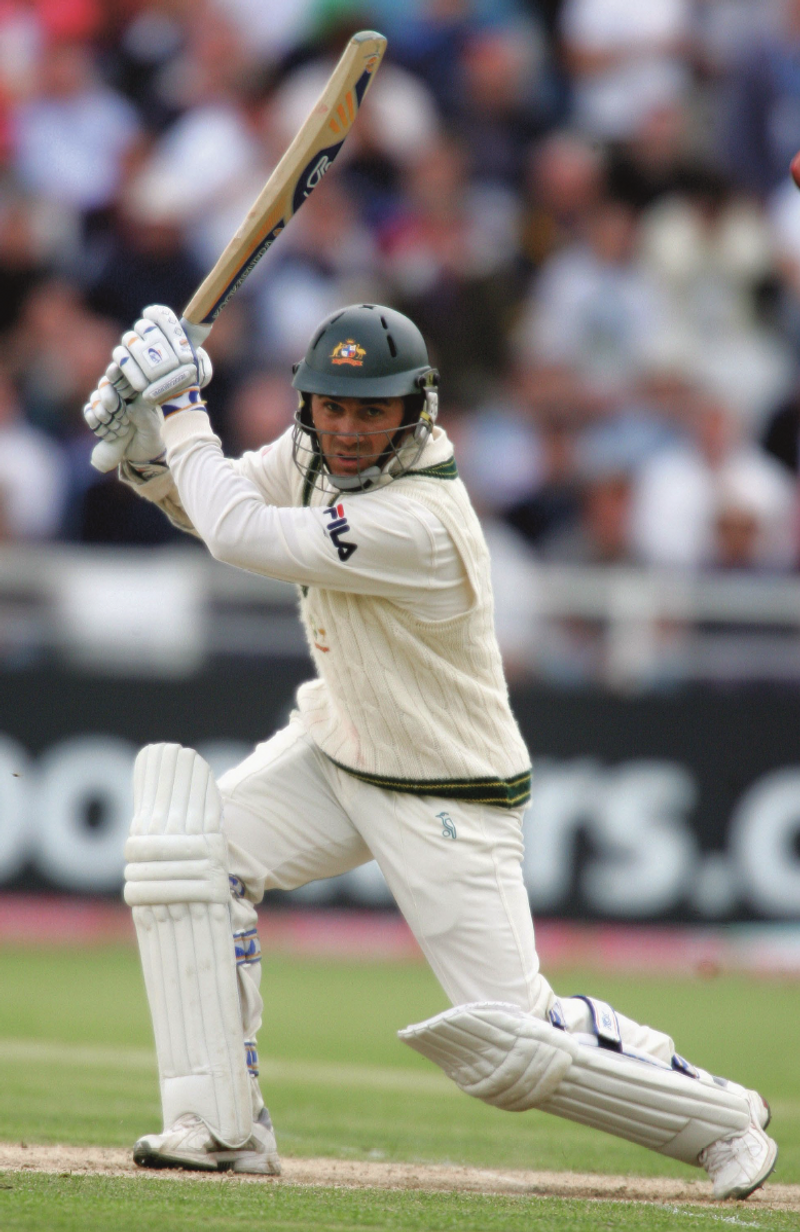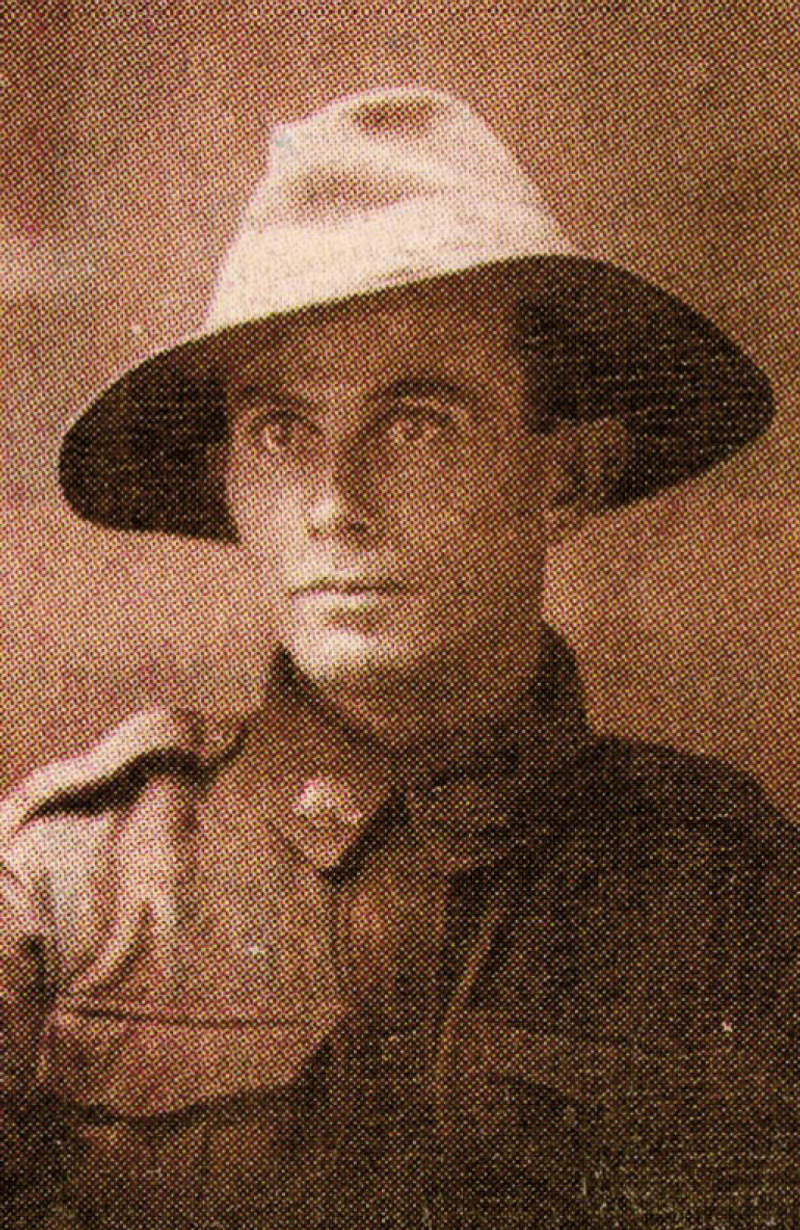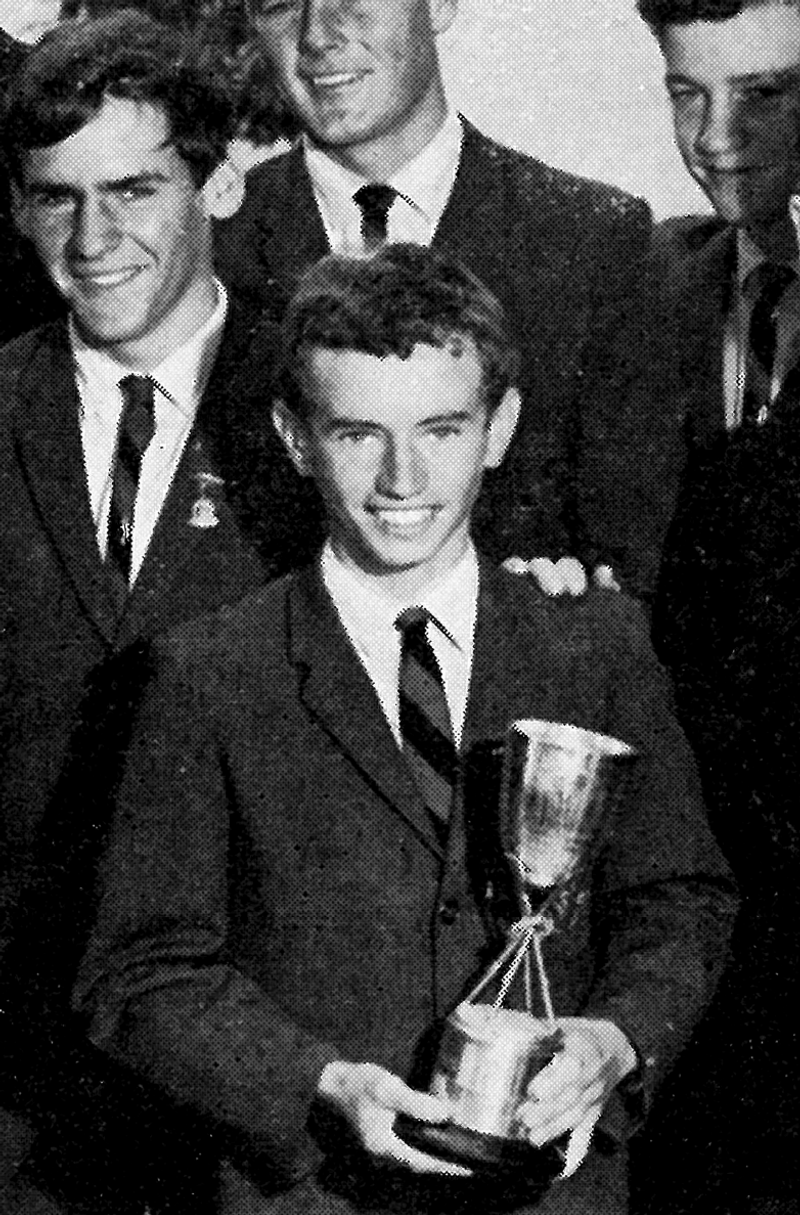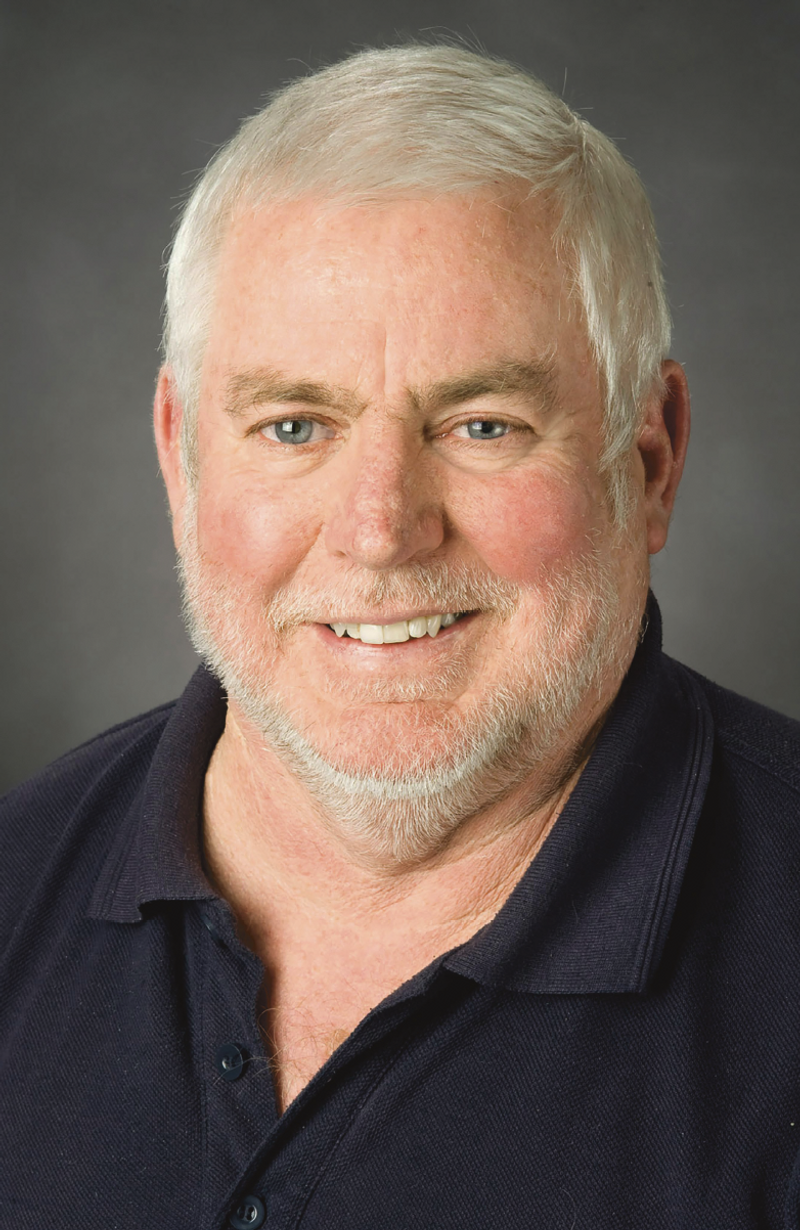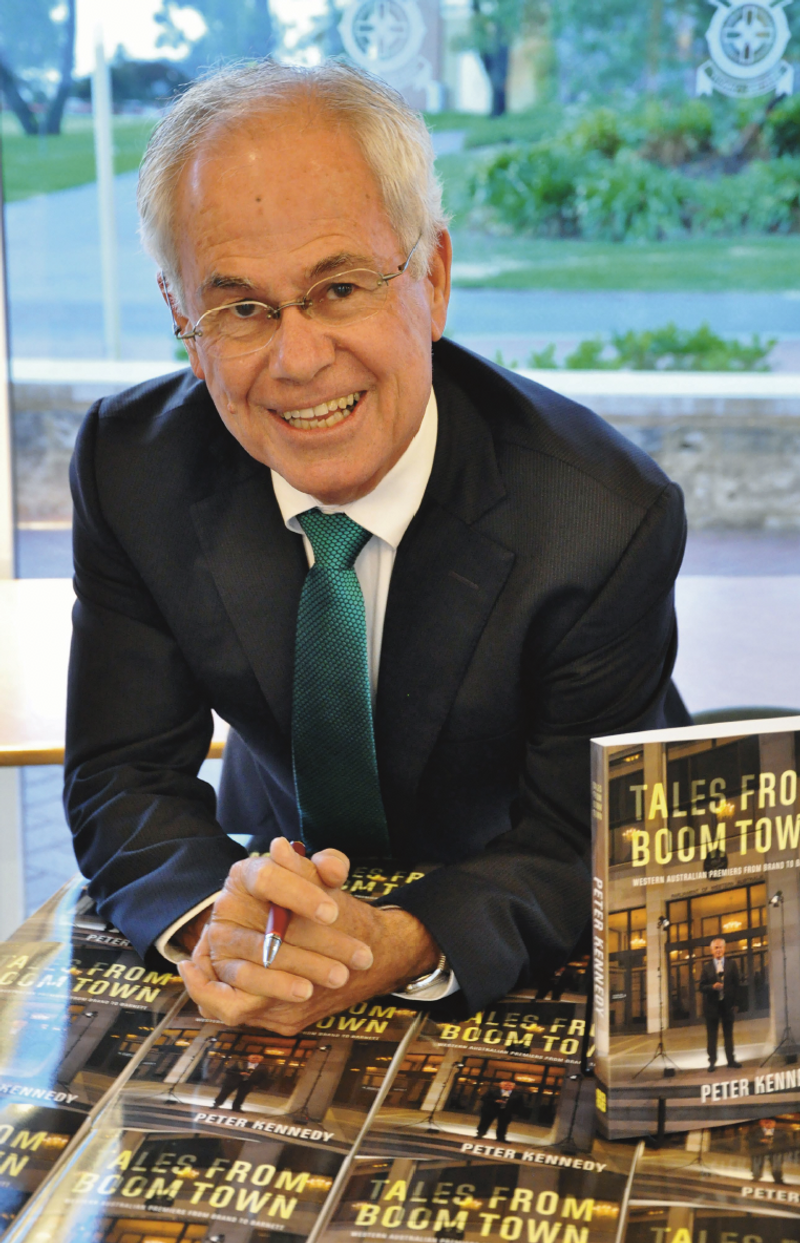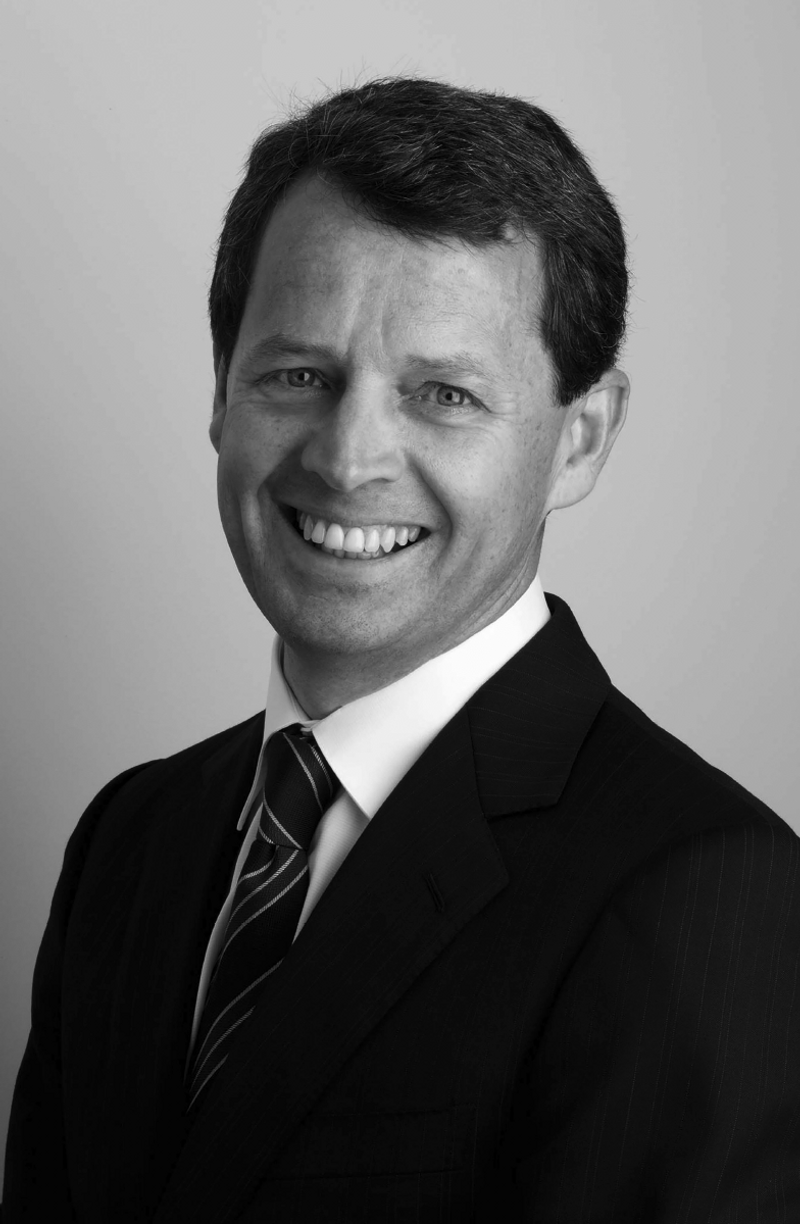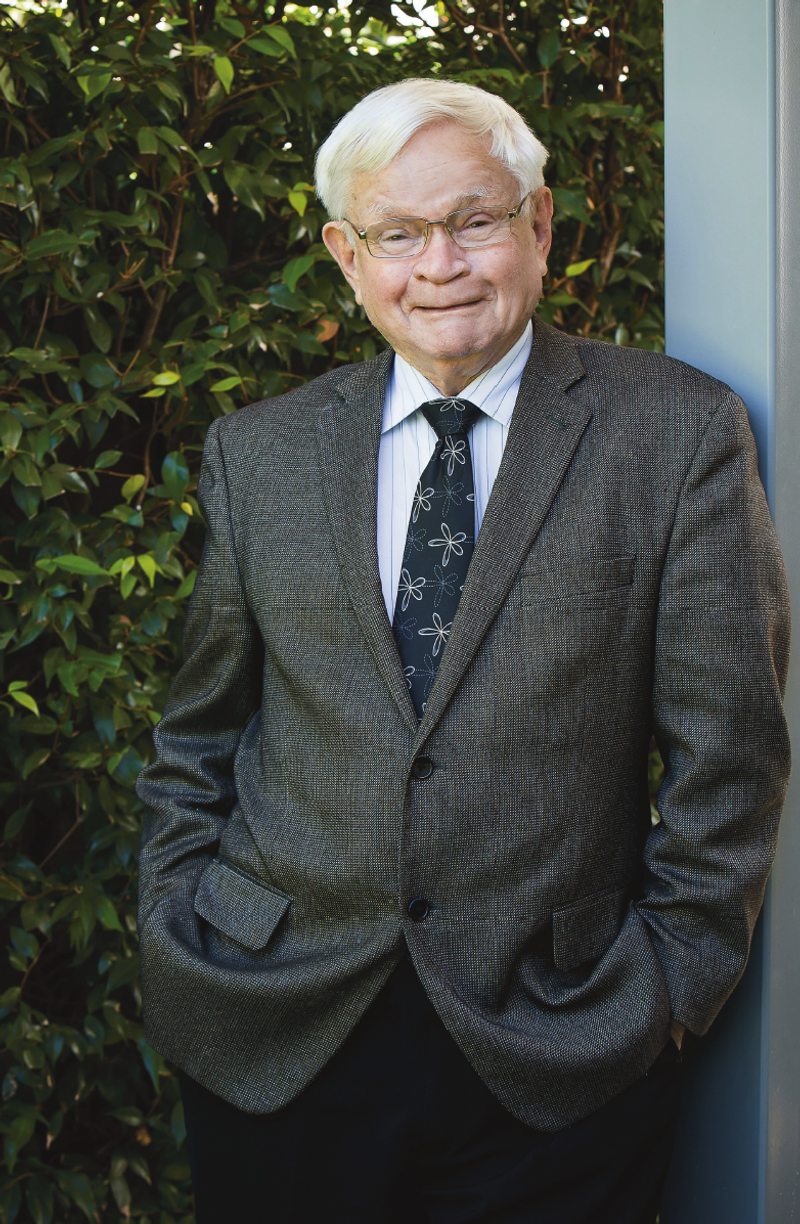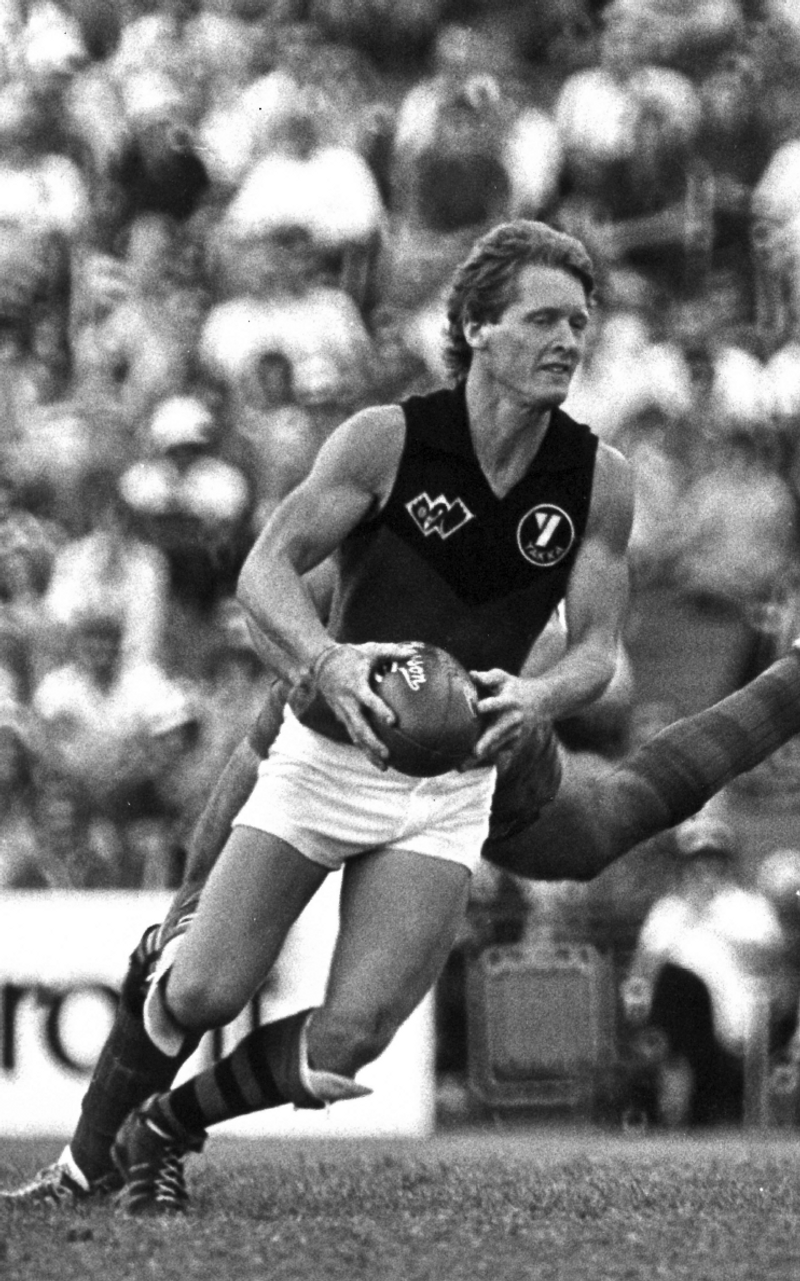Contact
Justin Langer
Class of 1987
Justin Langer showed his talent as a left-handed batsman early on the field at Aquinas. By no means just a cricketer, Justin also picked up the English Prize in Year 12 and proved himself as a footballer. He represented the state in Football, the same year he started hitting the ball out of the cricket field. Justin excelled at Cricket while at school and was first picked for Australia in the U/19 team. He played for the 1st XI every year at Aquinas College (with Honours) and was the PSA Representative each year. He left in 1987 with the “Most Outstanding Batsman” prize with the top batting average of 51.50 as Vice-Captain.
Justin toured England while at the school. He was accepted into the Australian Cricket Academy in 1990 at the age of only 19. He made an outstanding debut for Western Australia at the 1991-92 Sheffield Shield match and impressively made his Test debut for Australia the following year at the age of 22.
His ability to work with other people is the quality most people mention and the reason cited for his outstanding partnership with Matthew Hayden, regarded as one of the most successful partnerships ever in the history of Australian Cricket (total 5,655 runs). This partnership was the thing that picked him out of the crowd as a cricketer. In his last year, he recorded five of the top ten partnerships in his year.
If there is an award for resilience in the Aquinian alma mater then it goes to Justin Langer. His incredible work ethic is often cited as the quality that separates him from the pack. He is also someone who has time for the cricketers of tomorrow as he has a huge impact on boys who have heard him speak. Some of them are not ashamed to admit they have put up on their wall the words Justin said to them that really chime with them.
It is said of him: “he has a strong sense of integrity and values that has held him together in his life, he is a man of the people who seek out new people and enjoys learning. He has evolved. It’s been consistent through his life that hard work and determination are the hallmarks of his career.”
There are few cricketers from his era who go on to coach with the same sense of excellence and drive. Little wonder then he has become such a very popular choice to coach Australia. The moment he shared the news with his father was one of the proudest moments of his life.
Pte Martin Troy
Class of 1908
Martin excelled at Christian Brothers’ in the early part of the last century. His life contains one of the more memorable personal stories of the Great War. An outstanding cricketer: he once took 14/32 while at school. He also still holds the Athletics record for throwing a cricket ball 112yds. On leaving school, he became an accountant at Mily Mily Station near the Murchison River, until the war interrupted his life. His enlistment number was 688, and he joined a month before his 24th birthday.
He landed at Alexandria, Egypt on 3rd February 1915. Two months later, he embarked for Gallipoli on April 12th 1915. Whilst fighting at “Bloody Angle”, he and others from his Battalion were bombed. Knocked senseless by a bomb, he awoke to find his mates Privates White and Gray lying dead beside him. All others he had arrived with were dead or wounded. He crawled away after dark but was captured by a German. This man changed his life when he discovered a Catholic medal from St Stanislaus amongst the dog tags around his neck. He too was a Catholic and the two men communicated in the German’s broken English and spoke about the futility of war. Reportedly, his captor was relieved when it was decided that Martin should be spared. The following three years were terrible hardship and his weight nearly halved during his internment as a Prisoner of War in Turkey. It was reported after the event: “Of those Australians who fought in this action, he was the only one who survived it in the hands of the Turks”.
He was reported missing on 1st May, as no one knew he had survived never mind been taken to the Kaba Tepe Region of Turkey. As a prisoner, Martin worked on the Bagdad Railway Construction Company’s railway and tunnel through the Taurus Mountains. At the end of the war, he was repatriated to England and disembarked at Dover on 8th December 1918. He was clearly well treated and recovered as he marched out from the Australian HQ London to Weymouth nearly a year later and was returned to Fremantle on 2nd April the following year.
Martin went on to live a long and happy life on his return to Australia. He married and had three children: Frank, Joan and Maureen. Joan is the mother of Test cricketer Terry Alderman. Martin’s career as an umpire at the WACA was in sharp contrast with that of his early life, as no doubt his grandson Terry Alderman would testify.
Brian Tonkin
Class of 1967
Brian Tonkin is the product of the glory years of Aquinian rowing. Brian learned about strategy from the stern seat of the First Eight. The cox is the “coach in the boat” and there has been none better than Brian, or “Tonks” as he is more affectionately known. He has been a force for tight teamwork and leadership in rowing at the school for decades. He coxed the First Eight at the Head of the River for four consecutive years ending in his last at Aquinas College.
Brian and his older brother went to Aquinas courtesy of hard-working parents. His father drove a school bus for the government and his mother worked in the dining room at the Christian Brothers, St George’s Terrace as a young woman before she married Brian’s father. It was a real challenge to earn enough between them to send both boys to Aquinas but grit and determination won through and they provided Brian with an education from the Christian Brothers that he treasures to this day.
He arrived at Aquinas at the age of ten in grade five and began to cox “because I was skinny” he says, the following year. Besides loving the sport he was helped along by the promise of a toasted bacon sarny every Wednesday morning from his mum. Brian recalls he was a “shy student” who learned so much from the huge responsibility he had as cox. “You’re in charge of a boat and you can’t see where you are going, yet you have to see the path, you got to know the river”. It helped him navigate his way through life and taught him how to sail through difficult waters strategically. For him, it was a metaphor for life.
Brian worked hard at school and left with honours in rowing before studying for a teaching degree, at Claremont Teachers’ College where he met Shirley his wife, who he married at Aquinas. He returned to the school to teach there and then ran Nunan House with Shirley and his two girls. In total, Brian served 43 years at Aquinas and did 54 years in rowing. His commentary at Champions Lake in later years is legendary and when he finally hung up his microphone many paid tribute to the impact his dulcet tones had on the occasion. But mostly he remembers the Christian Brothers who taught him, “some of the best people I have ever met”.
Brigadier Gerry Warner AM LVO

Class of 1966
One of the marks of a true Aquinian is his tendency not to sing his own praise. Anthony Gerard Warner (Gerry) is as unassuming as he is impressive. The son of Mary (Molly) Moon from Kalgoorlie and Frank Warner from Leonora, his parents were community-minded people who together with the Christian Brothers at Aquinas College instilled in him from a young age the importance of learning. Gerry who fully admits and regrets that he didn’t try hard enough at school, and “took his foot off the pedal”, nevertheless performed well and has made the most of opportunities since at every turn. He has seen extensive regimental experience in the military and travelled widely, supported the offices and lives of Governors-General and served worked with UN peacekeeping forces.
Graduating from the Royal Military College, Duntroon in 1971 with the highest military marks in his class, Gerry was allotted to the Royal Australian Artillery. He was encouraged to study on the army’s ticket and gained a BSc (Honours) in Chemistry. Gerry has continued to study with the best in his field at home and abroad throughout his career.
When he set off to Yarralumla to meet the then Governor-General Sir John Kerr in 1976, and compete with two fellow captains in a round of interviews, he was selected as his Aidede-Camp responsible for managing the Governor-General’s functions, travel and appointments.
The upward trajectory of his career continued rapidly and Gerry was appointed a UN Military Observer with UNTSO in the Golan Heights and Southern Lebanon the following year. He returned to Government House as a lieutenant colonel in the eighties as Military Secretary and Comptroller for Governor-General Sir Ninian Stephen.
His artillery service included command of 111th Air Defence Battery (Light) in 1981-82 and 16th Air Defence Regiment in 1989-90 and saw him participate in several major exercises in Singapore, Malaysia and Germany. The Queen recognised his services in 1988 by appointing him a Lieutenant of the Royal Victorian Order (LVO), a huge honour. He was promoted to Colonel in 1991 and served as Director of Officer Career Management, Army, and then after attending the prestigious US Army War College, as Colonel Operations on Land HQ in Sydney. He was promoted to Brigadier in 1995 and was made a Member of the Order of Australia in 2000 for “service to the Australian Army as the Head Defence Centre – Perth, Commander 5th Brigade and Chief of Staff Land Headquarters”.
More recently Gerry returned to his native Perth with wife, Gerri, to be CEO of an ex-service organisation that operates and runs retirement villages, aged care facilities and an aviation museum. He also serves on tribunals. From soldier to CEO, Gerry has earned the respect of all who work with him from the forces to members of the Royal Family. Looking back he says: “Aquinas taught me about discipline, duty and gave me a love of learning”.
Dr Stephen Knott
Class of 1962
Although the ability to identify people by their teeth had been known for thousands of years, it is only in recent times it has been recognised as a speciality area of dentistry. This speciality termed Forensic Odontology, developed in Europe in the early 1900s and much later in Australia. Stephen has risen through the ranks of dentistry to become one of the most respected forensic odontologists in the country.
Born in Bunbury in 1945 from an Irish – Scottish parentage, Stephen joined Aquinas in Grade 5 and enjoyed everything Aquinas College had to offer. He remembers big classes of nearly fifty students and teaching in the early sixties that reflected the change from the tuition offered by the brothers to include lay teachers. He left Aquinas to embark on six years of study in dentistry at the University of Western Australia with a scholarship, graduating in 1969. He was posted immediately as a dentist to the military for two years with the rank of Captain. Dental care within the army was an education as ”Many who joined the army had poor teeth.”
Stephen joined as an associate within a private practice in Floreat Park in 1971 and later his own practice in Wembley until 2008. In 1992 he returned to study forensic odontology at the University of Melbourne and graduated as the first university-qualified Forensic Odontologist in WA. As science grew so did the need for Stephen’s services. He quickly became an integral member of the WA Forensic team with the then caseload of approximately 45 annually, increasing to the current task of approximately 80 per year.
When members of the Jemaah Islamiyah, a violent Islamist group detonated three bombs in Bali killing 202 people including 88 Australians, the Indonesian government invited the Australian Government to be part of the post-blast forensic investigation. Stephen was deployed by the Australian Federal Police as a member of Australia’s Forensic team. The task was to work with fellow Australian and International dentists to establish the identification of the victims by comparing their teeth with known dental records. It was the first time a single incident involving this number of Australian nationals had happened outside of Australia since WW11. He was awarded an Order of Australia Medal for his work there.
He has also worked as a Forensic Odontologist in globally significant and tragic events. For example, following the Asian tsunami in 2005, the Victoria bushfires in 2009 and the wreck of the refugee boat SIEV 221 on Christmas Island in 2010. In 2007, to facilitate the training of dentists in Forensic Odontology, he established a post-graduate course in Forensic Odontology at the University of Western Australia. Besides coordinating the UWA Forensic Odontology programme he continues to lecture both nationally and internationally. He is acknowledged as Fellow of the International College of Dentists, Fellow Academy Dentistry International and the international Pierre Fauchard Academy.
Also, he continues to provide Odontology services to WA via his position as Consultant Forensic Odontologist to PathWest, Department of Health, WA. The attitude that permeates his life and has hugely enabled him to get to where he is today, he puts simply as: “If you’re doing something and you enjoy it, you’re not working”.
Peter Kennedy
Class of 1959
The life of a political journalist is not an easy one. Politics is a world dominated by two big players on opposing sides of most arguments so the art of writing about this every day without upsetting either side is difficult to get right. One Old Aquinian who has done this with phenomenal skill is Peter Kennedy.
Peter and his older brother Tom followed their father’s tradition of Christian Brothers’ education and joined Aquinas College in 1957. Peter found he took to the academic and sporting life of the school in equal measure. His father was a public servant and part-time cricket and football writer for the Sunday Times while his mother had worked at “The Terrace” as a secretary before she married his father.
Peter finished his year at Aquinas a prefect and an outstanding athlete: winning the Gianotti Cup as Under 15s athletics champion having played in the 1st XI and winning the Scahill Cup for the Most Improved Batsman. He received Honours for his roles in both Football and Cricket and was also made an officer in the Cadets by Br Egan. He studied hard and played hard. Looking back he smiles as he remembers Br Madden’s “Reign of Terror”. But admits it did him good. He studied Economics under Br Manion’s stewardship in his first year at the college and loved it.
On leaving, Peter worked at the library at The West Australian for a bit before graduating with a Bachelor of Arts (Economics) and a Diploma of Education from UWA and becoming a teacher. When Lang Hancock and Peter Wright started a new paper “The Independent” it created an upward draft for those wishing to get into journalism as many left The West Australian and Peter found this the right moment to enter the profession.
But he became a full-time political reporter for the first time on the Sydney Morning Herald in 1978 with the title State Political Correspondent. He covered the 1978 NSW state election and later was appointed to the Herald’s Press Gallery office in Canberra. He returned to Perth in 1995 to be press secretary to Deputy Premier Malcolm Bryce.
Changing course to radio, Peter joined the ABC in 1990 working for Perth’s ABC 720 and went on to present both the Drive and The Morning Programmes. Although retired, Peter finds time to write for WA’s Business News and is Adjunct Professor for Arts and Sciences at Notre Dame, and the phone continues to ring for his wisdom on all things political. He feels blessed to be surrounded by his son and daughter and a combined six grandchildren along with his second wife Chris.
The launch of his book: “Tales from Boom Town: Western Australian Premiers from Brand to Barnett” was a “Who’s Who” of West Australian politics from both sides including speeches from former premiers Richard Court and Geoff Gallop. It is beyond dispute that elder statesmen of Western Australia all take Peter’s call, whenever it may come.
Looking back Peter says of his time at Aquinas: “I was fortunate to be taught by men who were committed and gave me a good sense of the value of learning”.
Judge John Staude
Class of 1975
The Class of ’75 was quite a formidable year. It produced at least two Aquinas Board chairs and a number of legal practitioners, among them John Staude who was appointed to the District Court of Western Australia in March 2010.
John came to Aquinas in 1969 from Holy Family School in Como, the first of four Staude brothers to do so. He was an able scholar and an enthusiastic participant in Debating, Drama, Hockey, Swimming and Army cadets. He was also a Prefect. He was active in the Young Christian Students’ movement through which he later met his wife Sharon with whom he has four children.
After leaving Aquinas, John studied law at UWA. In 1982 he was articled at law firm Talbot & Olivier, becoming a partner in 1986. For a few years, mentored by the late Brian Singleton QC, he practised mainly as a criminal lawyer, but from 1988 he specialised in civil liability and insurance. In 1994 he established his own practice and in 2003 he became an independent barrister. At the time of his appointment to the bench, he was a councillor of the Law Society of Western Australia.
John continues to be active in legal and judicial education, as a member of the District Court Education Committee, the Advisory Board of the University of Notre Dame Law School and the Steering Committee of the National Judicial Orientation Program. John has also contributed to many community organisations. For many years after leaving school he served on the committee of the Old Aquinians’ Association. He has been the chair of the St Paul’s School Board and president of the Guilderton Community Association. He is involved with the Friends of Moore River Estuary and now chairs the Pilgrim Trail Foundation.
Like his father Bill, he is a passionate cyclist with a special interest in cycle touring. In 2016 he cycled the Via Francigena, a 2000km pilgrim route from Canterbury to Rome.
John is thankful for his education. “Aquinas made me. It was a happy time and I had a terrific rapport with the brothers, the lay staff and the boys. I am lucky to have been in a year group that values the connections we made at school. As we get older the friendships become more meaningful.”
The enormity of the responsibility for making decisions that affect the lives of others is not lost on John: “Many of the people with whom I deal have not had the great advantages that I have enjoyed, especially a loving and supportive family and a good education. What I learned at Aquinas was that from those to whom much is given, much is expected.”
Prof. Ivan Kennedy AM
Class of 1956
Ivan Kennedy, son of a shearer, came to Aquinas from Clontarf as a day boy. A love of geometry, Euclid and the way the Christian Brothers challenged him to think creatively helped him at a time when his family life was disrupted by his parent's separation. It was the Brothers who decided he should go to university and diverted him from an unexciting life in the civil service.
A monitor from UWA assessed Ivan’s work while at Clontarf and told his teacher: “It was a standard he didn’t see at the university!” In his final year at Aquinas, he finished third in his year winning prizes for Australian History as well as History and Geography, securing six distinctions from seven subjects in the UWA entry examinations.
On leaving Aquinas, Ivan was granted a scholarship for study in Agricultural Science and went on to specialise in biological nitrogen fixation, a fascination that has stayed with him throughout his whole life. He graduated in 1962 publishing two papers in a biochemical journal from his undergraduate work, continuing his PhD for another three years in Perth. He, his wife Thea and their two baby sons set sail for the UK on the ocean liner Fairstar in mid-1965, embarking on a stellar global career in environmental science. Ivan took up a Post-Doctoral study at the Department of Biochemistry in Leicester where DNA research was in its infancy.
In 1966 he secured a Fulbright Fellowship at Purdue University in West Lafayette, Indiana, publishing three papers on arrival and worked there for two years. A lecturing job at Sydney University brought him back to Australia in early 1968 and the next three of his five sons were born there.
Over the decades Ivan and his very supportive Dutch wife travelled the world on the back of his A-grade research. 1974 alone saw them travel to Nice, the Netherlands, back to Cap d’Antibes and finally back to Australia. His rise up the ranks of academia to Personal Chair of Research in 1995 included a Higher Doctorate at UWA in 1992 in the environmental impact of nitrogen cycling, and publishing the highly-cited book Acid Soil and Acid Rain in the UK.
Along the way, he advised and mentored at the Tianjin University of Science and Technology in the Food Engineering and Biotechnology department. Indeed, mentoring his almost 50 PhD students to excel has been a passion. As he says: “What I mainly gave the world is another generation of researchers. My students have gone on to be global leaders in industry and academia”. He was named a Member in the General Division in the Order of Australia in September 2019 for Higher Education in Agriculture.
Ivan Kennedy, now Emeritus Professor at Sydney University, is an inspirational and accomplished academic whose life details are too large for this page. He says looking back: “So much of environmental science lacks rigour. What I got from my school education was discipline, a global viewpoint and making sure I got the best out of it.” He devotes much of his time now to the science behind climate change. His ongoing slogan is “never2late”.
Peter Spencer
Class of 1973
Peter Spencer spent seven years at Aquinas College before embarking on a stellar award-winning career on the football field in Victoria and WA. Incredibly officially at least, football was his second sport. He departed the College with the captaincy of the Cricket team and as vice-captain of Football. Peter was head of Edmund House, and won the College’s Best and Fairest Football player twice in three years. He played in the 1st XVIII in 1971, 1972 and ‘73. In his leaving Annual he is recognised by the other schools as: “probably the most brilliant footballer in the PSA. His technique in all facets of the game is very good. He trains with verve and dedication. He was the backbone of our side and seems set for a distinguished league career.”
So it was to be, Peter was spotted by East Perth Football Club on the fields of Aquinas and invited to join straight out of school under the “Father-Son Rule”. In fact, Peter followed in his father Jim’s footsteps to the letter playing the exact same number of professional games throughout his career, 185. His mother was the Assistant Librarian at Aquinas.
With the money that secured him his position he bought his first car, a Holden HR, and drove it proudly to his first day of professional football in East Perth. Six years later he was poached by North Melbourne and moved his new family east to take up this position. Peter had a belter of a year in 1981 playing for the Kangaroos in 19 games and kicking 26 goals, the third most. Sadly, due to injury he only played five the following year.
On returning to Perth in ‘83 with his family extended by the arrival of a second son, he played two seasons with East Perth before moving to Subiaco in 1985. He moved on to Claremont for two games and sadly was concussed in the last few minutes of the second game. On the advice of a neurosurgeon, Peter decided that his next year would be his last of active professional play and retired from the team he started out with, East Perth, in 1987. He was named as half forward flank in East Perth’s “Team of the Century” 1945-2005.
A career that included the Sandover twice and the F.D Book Medal three times didn’t stop there and Peter made the jump to on-air commentating for the ABC and a serious sideline in coaching the next generation at Aquinas College. Murray Ward (’54), one of the most memorable of Aquinas sports alumni, was a huge influence on Peter. He’d taught him as a boy and now coached him as a coach. Peter’s unstoppable path has been a road of many twists and turns and he reflects: “It’s not always a straight road. Knowing that and understanding the importance of friendship and being there for each other” are the two things that Aquinas College gave him that he will never forget. He was inducted into the West Australian Football Hall of Fame in 2007.
